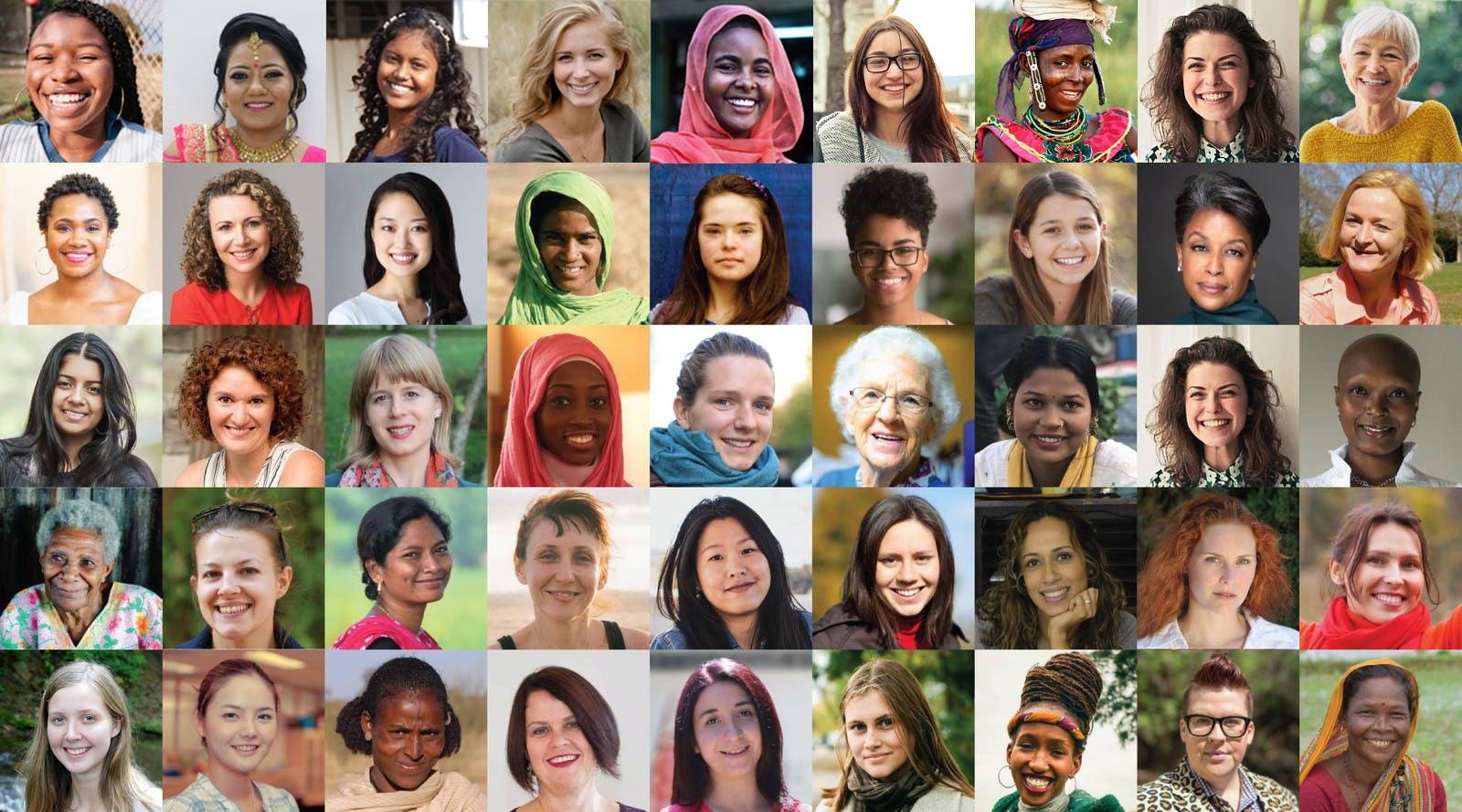Flávia Neves Maia: Creating a Joyful Climate Future in Northeast Brazil
Flávia Neves Maia was supposed to be in New York for her scholarship to Columbia University when the pandemic first hit. Like billions around the world, she remained at home. For Flávia, home is Northeast Brazil, along with two other friends in similar situations, Rhavena Terto Madeira and Rebeca Viana Rodrigues Nunes. They all moved to Barra Grande, a fishing village on the coast of their home state.
Piauí is one of the poorest states in Brazil and has been experiencing higher than usual temperatures. Considered a climate hotspot, these conditions are aggravated by increased tropical deforestation. Summers often exceed 40 degrees Celsius, and it's only getting hotter.
Witnessing their community’s struggle led Flávia, Rebeca, and Rhavena to start Filha do Sol this year. Their effort to regenerate their local mangrove forests originates from a holistic perspective — that one cannot just plant a tree; there must be insurance that these planted trees will remain for generations to come. That involves a perspective in an organizational culture that analyzes and learns from the systems that are already functioning.
“We knew we wanted to do something,” Flávia says, “I grew up with this awareness of climate change, although we didn’t use the words climate change,” she says, “my ancestors had to migrate because of drought. So I knew I wanted the impacts of climate change to be in my past, not my future."
Filha do Sol has plans to create a documentary about the power of women on the frontlines in Piauí. This is the first episode of three short videos that illustrate Filha do Sol’s vibrancy.
The Dangers of Tropical Deforestation
The Brazilian Northeast is at the same time extremely vulnerable to climate change and extremely powerful as a solution. On the one hand, there is a desert the size of England growing in the Northeast region of Brazil. On the other hand, there are more than 300 thousand hectares of mangrove forests, which serve as a potent carbon sink, but that are quickly dissipating due to tropical deforestation. Tropical deforestation causes increases in temperatures and changes in the distribution of rainfall, and in this case, extreme drought creating conditions unfit for human habitation. If global warming is not limited to pre-industrial levels, the temperatures will trigger one of the largest climate migrations our species has ever seen
“We face one of the greatest environmental tragedies in our history in Brazil,” Flávia tells.
The effects of tropical deforestation and climate change were not previously spoken about in Barra Grande. But with the pervasiveness of extreme poverty in the region and limited job opportunities and education, deforestation and pollution has persisted more than ever in the last decades. Flávia knew that Filha do Sol could act as a connecting tissue to create awareness on a hyper-local level, along with mangrove forest regeneration and local job opportunities.
It's harder than ever before to sustain a livelihood off the land in Barra Grande, and deforestation, extreme heat, and frequent droughts threaten the vulnerable biome of Northeast Brazil and the Amazon. Every year there is less fish, less shellfish, and less for locals to live off.
“There is a lot of incentive to destroy the mangroves,” Flávia says, “There is no climate mandate in the region.”

Climate justice in action for Filha do Sol involves an integrative approach that builds upon local knowledge and wisdom. Photo: Flávia Neves Maia
Filha do Sol: Daughter of the Sun
Filha do Sol’s mission is to regenerate and restore the mangrove forests of the Delta do Paranaíba. They scale up community organizing for climate mitigation and adaptation. They elevate the voices of local climate justice leaders, particularly women, to create coalitions working to create a climate mandate where there is none. They offer free consultancy on climate action and international development to local organizations acting in tropical villages and other frontline communities.
“I envision our network of women-led local organizations working on different fronts to preserve mangroves. Educating kids, cleaning plastic pollution, advocating for policy change,” Flávia says, “we want to expand to include academia in the local government so that everyone is on the same page about what needs to be done to regenerate mangroves and act on climate.”
Flávia, Rhavena, and Rebeca, the founders of Filha do Sol, pose no small risk in operating an environmental organization in Brazil. “The Brazilian Northeast is one of the most violent regions for women,” Flávia says.
Global Witness reports that Latin America has staggering figures that underestimate the deadly attacks on environmental campaigners and activists, with Brazil being amongst the highest totals. “Being an environmentalist that is a woman is a challenge on an everyday basis,” she explains.
Filha do Sol means “Daughter of the Sun.” The anthem of Piauí calls the state of Piauí the daughter of the sun for its proximity to the equator and defining heat. “We wanted to honor nature,” Flávia says. “Filha do Sol also honors the fact that we are nature.”
“The natural elements are our relatives, not a resource,” she says.

Photo: Flávia Neves Maia
Leading Away from Fear and Towards Love
Filha do Sol envisions job opportunities for women that involve regenerating the mangrove forests, and Flávia leads from a perspective in which the community will engage their whole selves into the projects with head, hands, and heart, inspired by her Dalai Lama Fellowship.
Flávia describes a friend of hers in Barra Grande who recently had a daughter. She came from a family of shellfish farmers that lived off fishing for generations. But with depleting resources, it is no longer financially sustainable to live off fishing, leaving her to her own devices to create income opportunities.
“Sometimes she goes to the mangrove and just starts cleaning all the plastic, and the pollution, and all of the trash. She told us ‘I wish I could live off nature regeneration,’ how can we create this job opportunity for her? At Filha do Sol, we want women to be the ones who are planting the mangroves,” Flávia explains.
With the regeneration of the mangroves, there is a possibility that the shellfish populations will replenish. “She really wants her daughter to see her replant the mangroves. And maybe she cannot be a shellfish catcher now, but her granddaughter can because she did the work of regenerating the mangroves. She is giving back this tradition to her family.”
“We were so connected to the community,” Flávia says, “we wanted to express our love to the territory.”
The women and environmentalists in Barra Grande have a deep wisdom, love, and knowledge about the land that Flávia, Rhavena, and Rebeca strive to amplify.
In celebrating and honoring Candomblé traditions, they went to the mangroves, which according to these traditions, is recognized as the entity of Nanã. Together with local activists, they asked for permission to regenerate the existing damage in the mangroves. Candomblé is local to Brazil, described as a religious expression of African Diaspora. They sang the Sou de Nanã song. The lyrics translate to “I belong to Nanã.”
“Singing the song with devotion to Nanã, I had this insight that I belong to Nanã, the mangroves. The mangroves don’t belong to me. So every time I go, I realize how powerful nature is,” Flávia says, “and how much she needs us to heal.”

Photo: Flávia Neves Maia
The Top-Bottom Approach
With less than a year since starting Filha do Sol, Flávia Neves Maia shares her values in running a climate justice organization.
- Leading through a Sustainability Lens. If we want to be social entrepreneurs and do sustainable work, we cannot burn out. We cannot just act from this place of desperation and fear. What we are doing is important, and how we are doing it is also important. We didn’t want to replicate a process of work that is exploitative by design and lead people to burn out. Once a week, we have an offline day, and this day is for us to take care of ourselves and take care of our team. It's a day of introspection and contemplative practices.
- Learn from and Listen to Every Voice. How can we sit in the same circles with people who disagree with us? It's not easy to engage a community when there is such a huge cultural separation. How can we integrate people in the same space? How can we learn from each other? Bridging and unifying polarizations is an ongoing process.
- Head, Hand, and Heart. What does it look like to act on climate from a place of love rather than fear? My inspiration is nature herself. Every time I go to the mangroves, I feel so connected and alive. Filha do Sol remains committed to the mindfulness practices of presence-awareness and loving-kindness.
- Joy and Hope are not Naïve. Brazilians are joyful no matter what. It's something that you need to combine with a vision, a strategy, with discipline, and when you combine these rationalities with the more emotional aspects of who we are, we can really be at service. We can really be healers and serve nature in the way that she deserves.

Filha do Sol leads workshops for local women on climate action that involve dance, yoga, and meditation. Photo: Flávia Neves Maia
Gaining Visibility
Filha do Sol has plans to create a local festival with arts, music, and mindful, contemplative practices, and to connect the international community with the local community. “Soon we will have a volunteer program so people can come here and work with us. For example, saving turtles, planting trees, or educating kids,” Flávia says.



.jpg?auto=compress%2Cformat)

